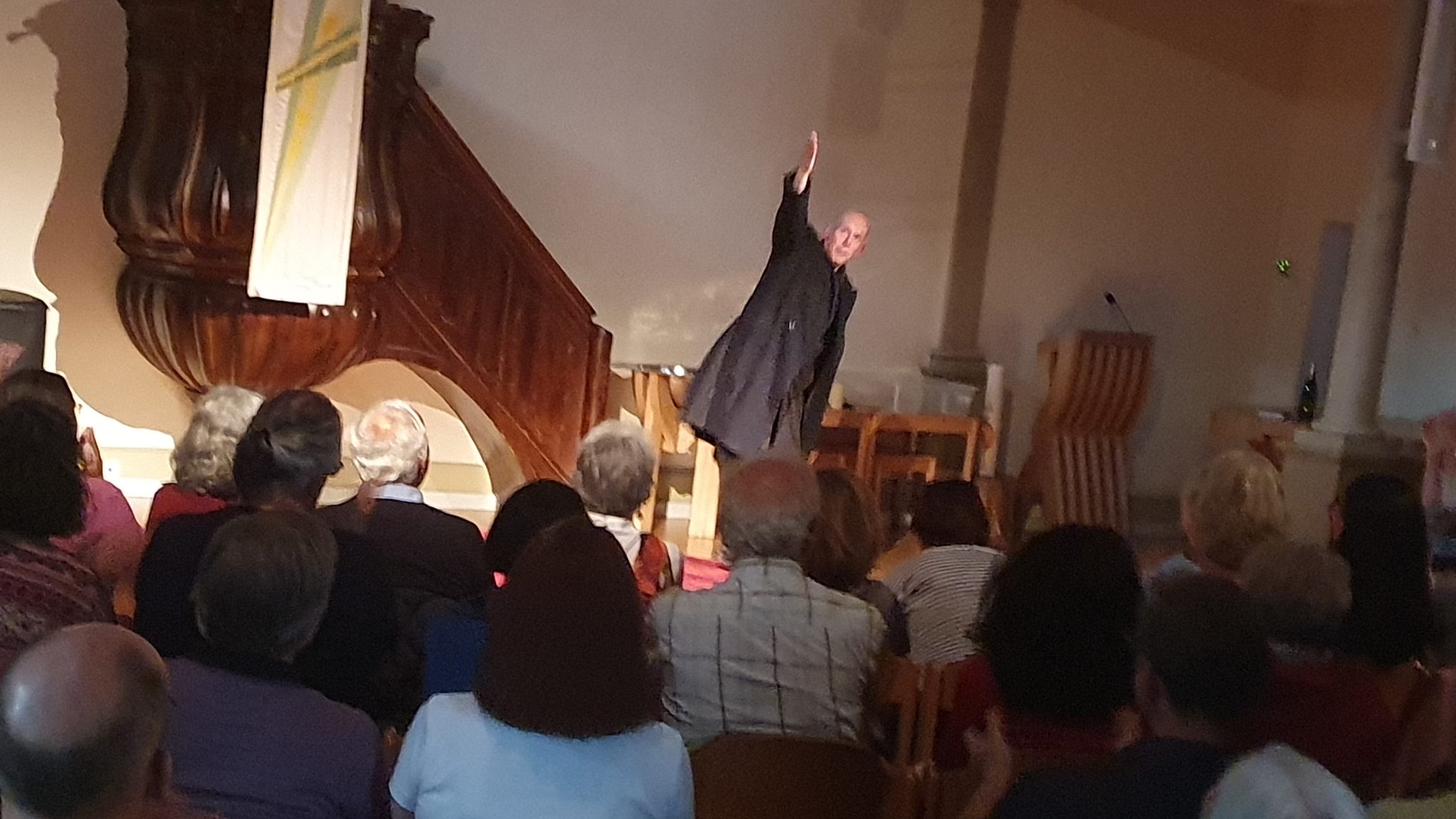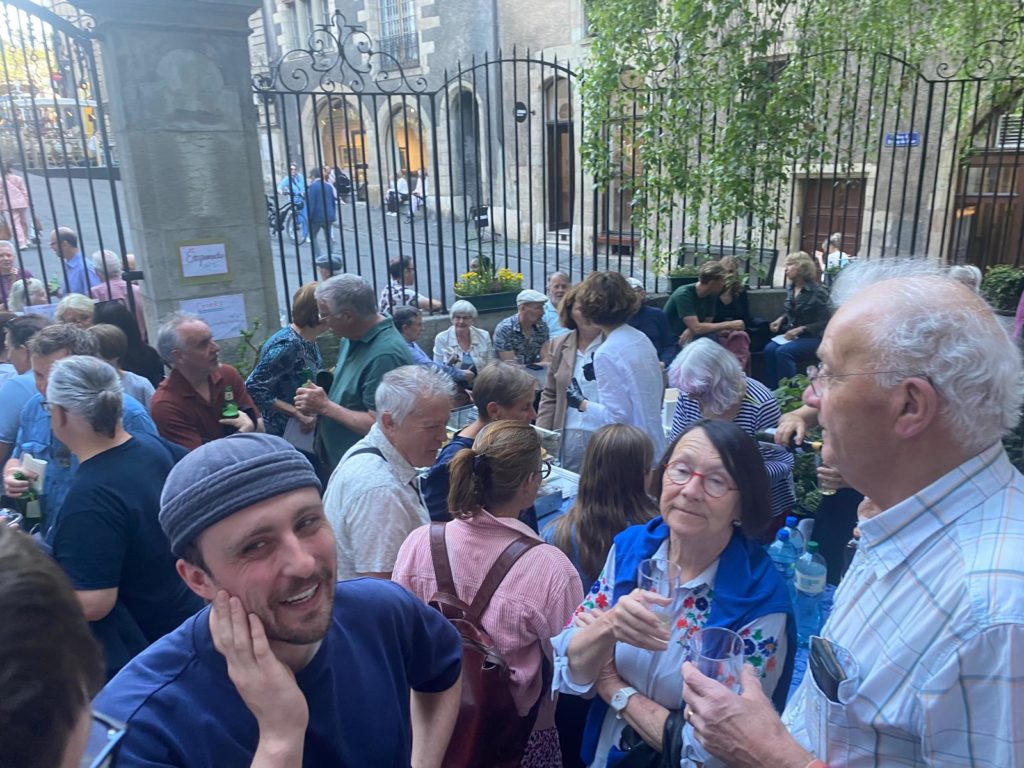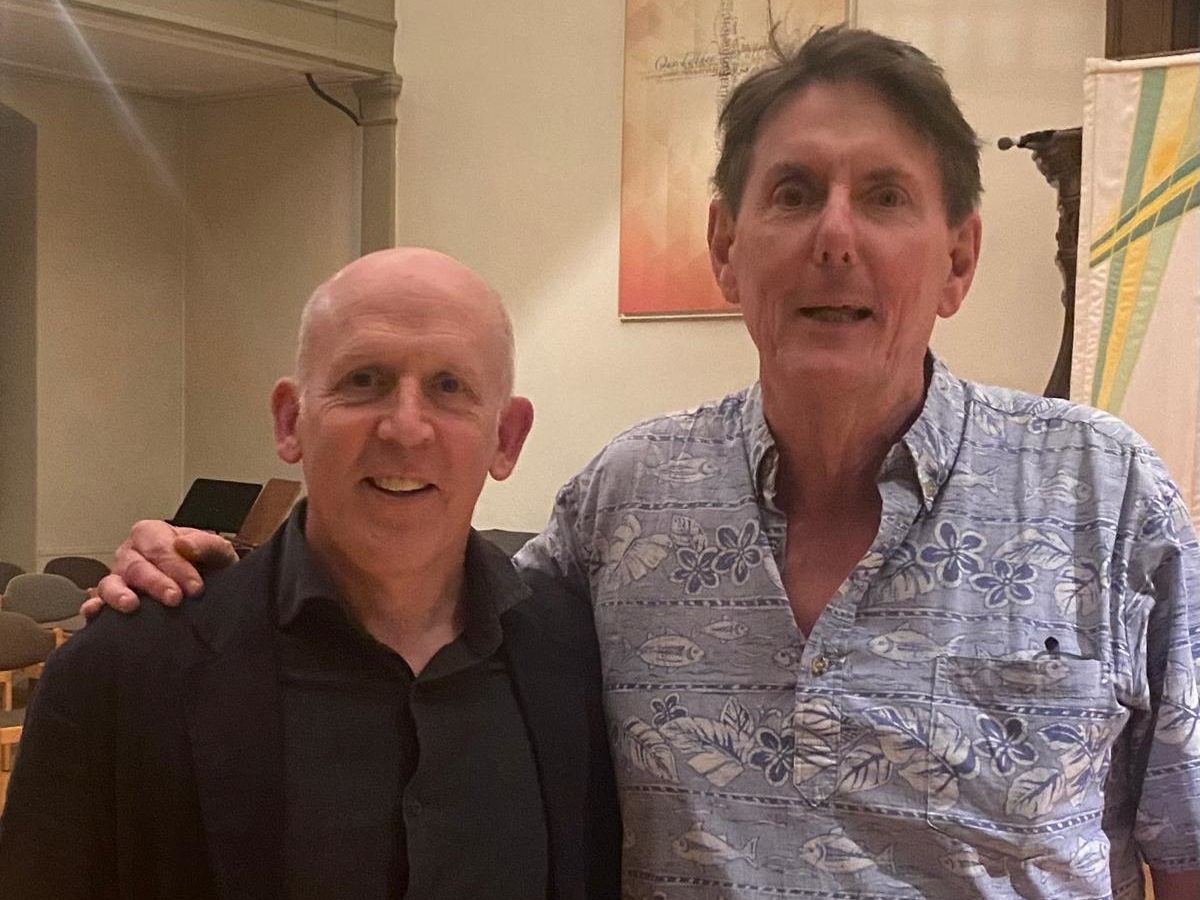Nobody could ever accuse Samuel Beckett of looking at life through rose-tinted spectacles, fascinated as he was by ‘the tranquillity of decomposition.’
That’s a phrase I picked up from Conor Lovett’s marvellous incarnation of Beckett’s anti-hero Molloy on the Geneva stage last night before a capacity crowd in the Lutheran Evangelical Church.

The drama in Molloy’s life comes from the invasions and intrusions of the outside world. His contemplation of his own mental and physical shortcomings alongside his great poverty is comically interrupted by an outside world which bewilders and, sometimes, enrages him. His narration of these absurd events gives the audience some semblance of a storyline to follow, whether it’s how to attract his demented mother’s attention, or to satisfy police inquiries into his behaviour, his fortunate escape from an angry mob, or his efforts to assist at the graveside of a dog he has accidentally killed with his bicycle.
Molloy contemplates the wretchedness of his own existence with a verbal dexterity that occasionally has epigrammatic echoes of Oscar Wilde while asking the big question…”what’s it all about?”

While worthy of consideration, existential despair is not what GLAS is about and last night’s audience with the support of sponsors raised CHF 5,300 for the Edith Wilkins Foundation for Street Children in Darjeeling.
GLAS was delighted to resume its collaboration with Conor Lovett directed by Judy Hegarty-Lovett of Gare St. Lazare (Ireland), which first started in 2005 and has included productions of Samuel Beckett’s ‘The End’, Will Eno’s ‘Title and Deed’ and Conor McPherson’s ‘The Good Thief.’
Beckett famously served as James Joyce’s secretary for a period and GLAS will return on Bloomsday, 16 June, with a show full of humour from that great novel of the 20th century, Ulysses.
